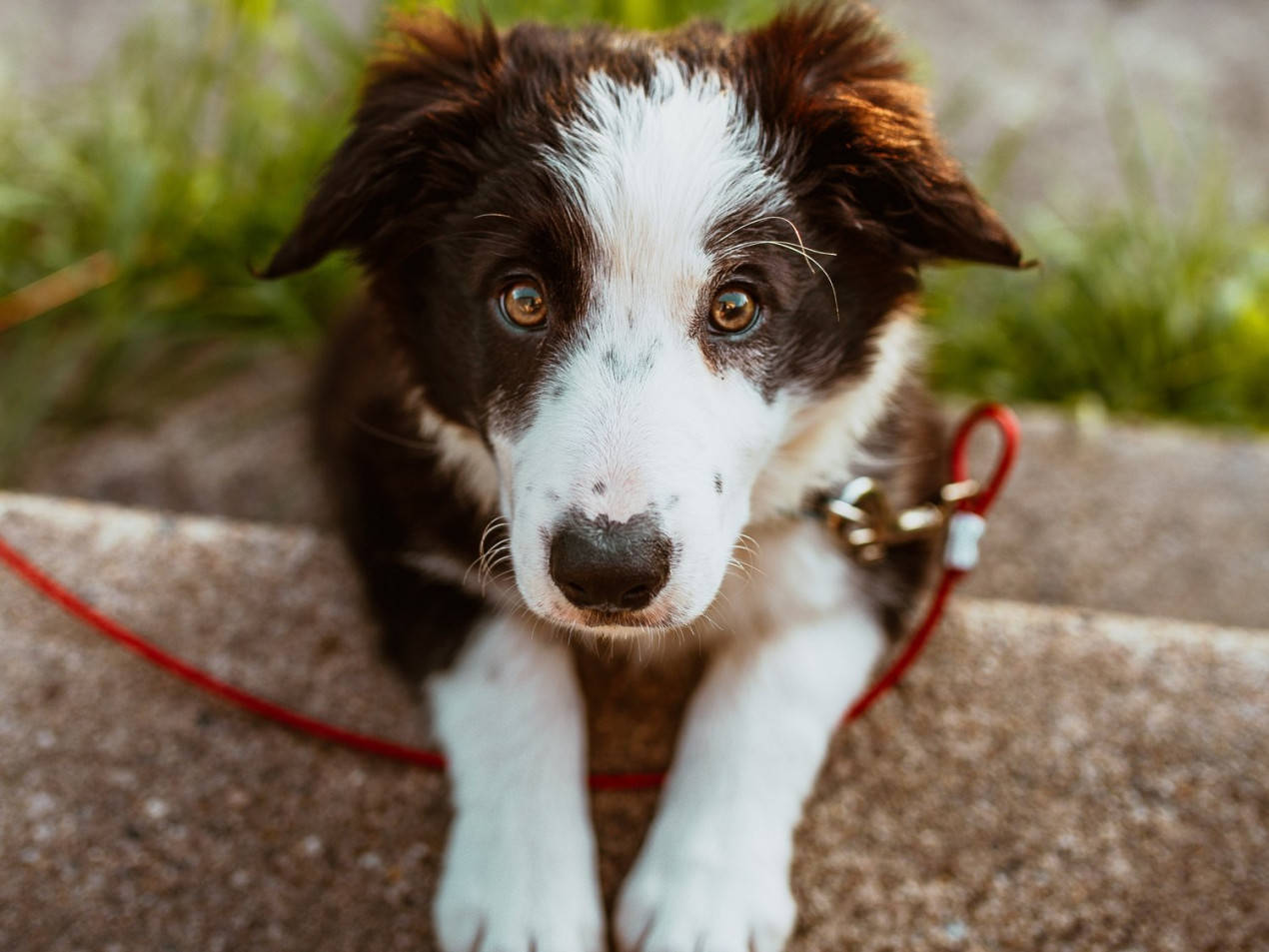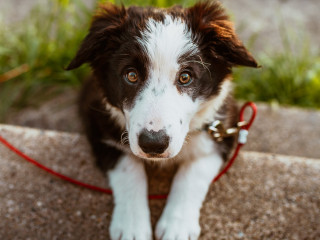We're here to help

Dog eye infections
Eye infections can be as uncomfortable for dogs as they are for us humans. There are a whole host of possible causes of eye infections in dogs, including allergies, foreign bodies (such as sand or grass seeds), viruses, bacteria and injury.
Although your dog’s eye infection is unlikely to be life-threatening, it can affect their sight and have a very negative impact on their lives, not to mention cause them pain and discomfort. Eye problems in dogs can progress very rapidly, so contact your vet or out of hours, your nearest Vets Now pet emergency clinic right away.

How do I know if my dog has an eye infection?
If your dog’s eyes are weeping, watering more than usual, or you notice yellow, green or white coloured discharge, they may have an eye infection. Other signs of eye infections in dogs include pawing at their eye, blinking more than usual, swelling, redness and squinting.
Signs of eye infections vary widely due to the number of possible causes. If your dog is showing signs of eye discomfort or you notice anything unusual you should always contact a vet for advice.
When should I take my dog to the vet for an eye infection?
You should consult a vet as soon as you suspect your dog has an eye infection to ensure they can get treatment as quickly as possible. Any eye problems in dogs should be treated by a vet to avoid causing unnecessary pain and minimise the threat to your dog’s sight. During the day you can contact your local vet or if it’s out of hours (at nights, weekends or any other time your vet is closed) our experienced team of vets and vet nurses are on hand to help. You can find your nearest Vets Now pet emergency clinic here.

You might also be interested in:
Can a dog's eye infection go away on its own?
It’s vital that you see a vet if you suspect your dog has conjunctivitis or other eye problems so they can diagnose the problem and start treatment. You should not wait for it to go away on its own or rely on home remedies. In many cases, your dog’s eye infection will not go away without treatment. It could also be causing them pain, which no dog owner wants for their pet.
Conjunctivitis in dogs
Conjunctivitis is the most common type of dog eye infection. It is an inflammation of the clear tissue which covers your dog’s eyeball and the inside of their eyelid. As with all possible eye infections, it’s important that your dog sees a vet if you suspect they have conjunctivitis as, not only could it be painful, but without treatment it could cause lasting damage.
What is the treatment for dog eye infections?
If your dog has an eye infection you should take them to your vet who will advise you on the best course of treatment once they have examined them and diagnosed what’s causing it. Because there are so many different causes of eye infections in dogs, there are also many different possible treatments. These including removing the irritating object from the eye, prescribing medication and performing surgery.
How can I prevent dog eye infections?
Due to the numerous possible causes of eye infections, it is impossible to completely prevent the risk to your dog. But it is always best practice to keep the area around your dog’s eyes clean and free from anything that could irritate them (such as dust, grit or hair). Regularly checking your dog’s eyes will also help you spot anything unusual and ensure your dog gets treatment as soon as it is needed.
Why are my dog's eyes watering?
Epiphora is the medical term for when your dog’s eyes produce too many tears. If your dog’s eyes are watering excessively the excess tears will run down their face rather than drain away and over time this dampness can cause irritation, staining and odour as well as lead to infection. Excessive tearing can be caused by a dog’s eye infection as well as other kinds of eye irritation, (in the same way our eyes water to protect us from irritants). It could also be that your dog’s eyes aren’t able to drain the tears properly, which is a trait in certain dog breeds (such as some flat-faced breeds) but could also be due to other issues. As with all dog eye problems, if your dog has runny or watery eyes the best thing to do is contact your vet for advice.

